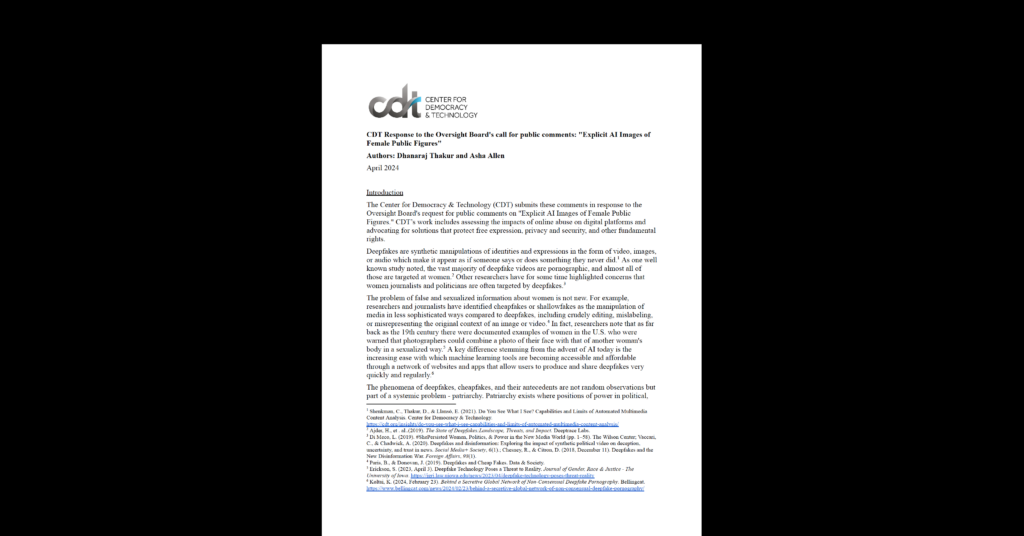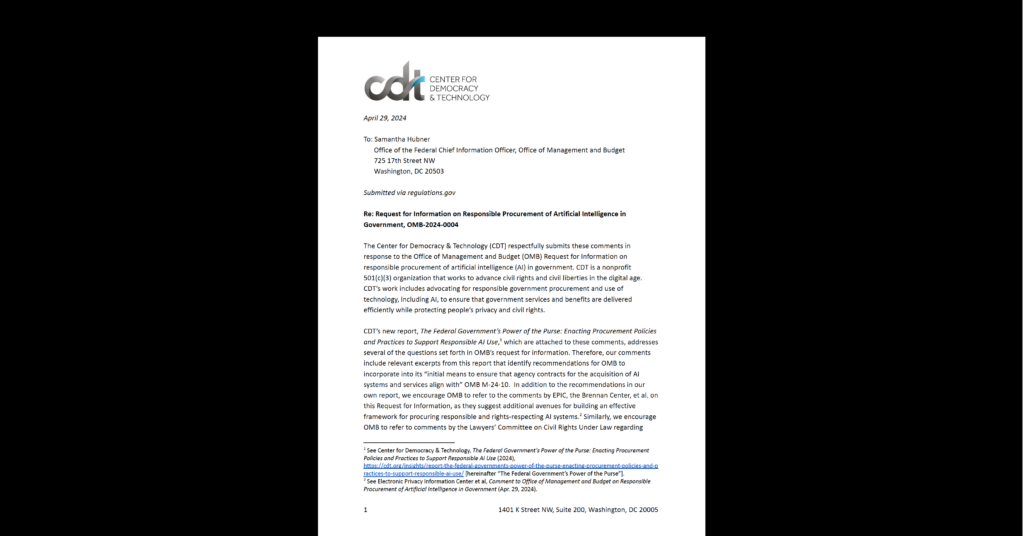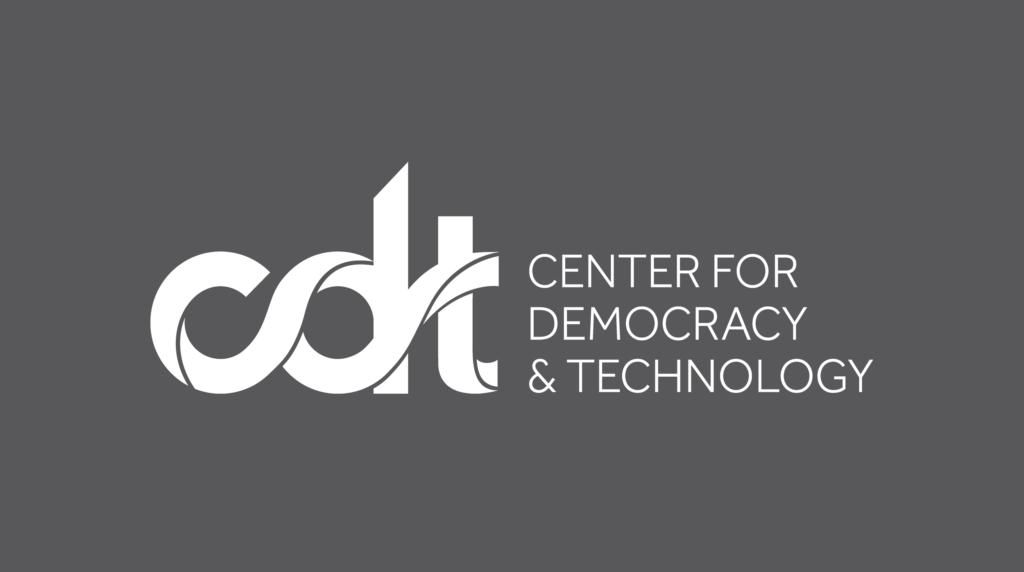CDT CEO Joins Vice President Harris Roundtable on AI, Civil Rights, & Consumer Protection
On July 12, CDT President and CEO Alexandra Reeve Givens joined other civil rights and consumer protection leaders in a meeting with Vice President Kamala Harris on AI. The meeting was joined by OSTP Director Arati Prabhakar, White House Domestic Policy Advisor Neera Tanden, White House Gender Policy Council Director Jen Klein, and other senior Administration staff. Her remarks follow:
Meeting of Vice President Harris with Consumer Protection,
Labor, and Civil Rights Leaders on AI
Remarks of Alexandra Reeve Givens, President & CEO,
Center for Democracy & Technology
July 12, 2023
Thank you for convening us today. I know we’re short on time, so I’m going to make two framing points, and then highlight three areas for concrete action the Administration can take.
In terms of framing: we’ve just heard the litany of ways AI systems are impacting Americans’ lives today. There’s a risk that the recent focus on generative AI, or the long term risks of highly capable models, distracts from the ways in which AI is already affecting the American people. This Administration has been leading on AI since before it became a headline, through the AI Bill of Rights and other actions. You should keep momentum on these consumer harms even as you address other AI issues too.
My second point is to resist any framing that puts addressing AI harms as somehow counter to AI innovation. It’s a false choice. When an AI system doesn’t work as intended or discriminates against people, it doesn’t just harm people, but also the businesses and government agencies who rely on the tool to work. There’s a business case as well as a consumer case for responsible AI governance. As the U.S. asserts its global AI leadership, we should show how a democracy pursues responsible, rights-respecting innovation.
I’ll share 3 concrete steps for this.
First, the Administration should set a comprehensive policy for the federal government’s development, procurement, use and funding of AI, grounded in the AI Bill of Rights.
The U.S. would set a worldwide model that will have run-on effects internationally as well as domestically, as state and local governments look for guidance. You can ensure that no federal agency is procuring an AI tool without rigorous assessments for safety, efficacy, discrimination, or privacy harms.
The OMB guidance is a critical opportunity through which to do this. But I’d urge further steps to institutionalize this vision – creating the infrastructure to ensure agencies meet their obligations and have the resources to do so.
Second, beyond this overarching vision, the Administration should issue specific directives to address the types of harms raised here today. Building on the concerns raised by Maya [Wiley, President of the Leadership Conference on Civil & Human Rights] and Sneha [Revanur, co-founder of Encode Justice], one critical step is a directive to expressly address discrimination in federal and federally-funded programs. The racial equity EO says AI must be implemented in a way that advances equity, and Title VI requires non-discrimination in federally funded programs. You can give that meaning: for example by new rules on how federal grantees must show their compliance with that mandate.
On the fraud issues raised by AARP, it’s clear we need more resources for law enforcement to understand and crack down on these harms, and the Administration could tackle it with the same rigor you’ve brought to junk fees.
You could also consider other directives, like how AI hiring and management technology is used in the federal workforce and by federal contractors, or ensuring our international agreements don’t undermine AI governance laws at home.
Third and finally, it’s crucial that the Administration shape private sector actions now, so we aren’t playing catch-up. Legislation will be important, but the Administration can lead by doubling down on agencies’ guidance and enforcement actions in their respective sectors. You could also help support this work, like announcing a Task Force and shared technical infrastructure for the enforcement agencies.
I know others have ideas to share. In my view, the key is demonstrating this Administration’s commitment to responsible, rights-respecting innovation; and creating the lasting infrastructure, government capacity, and coordination to see that through. Thank you.


